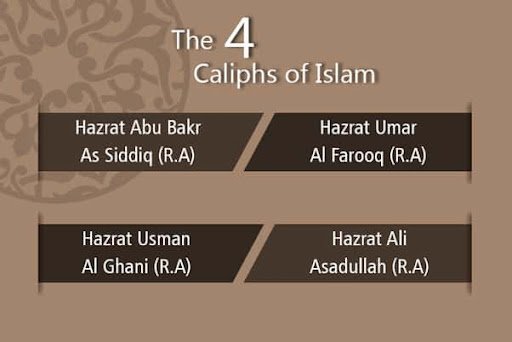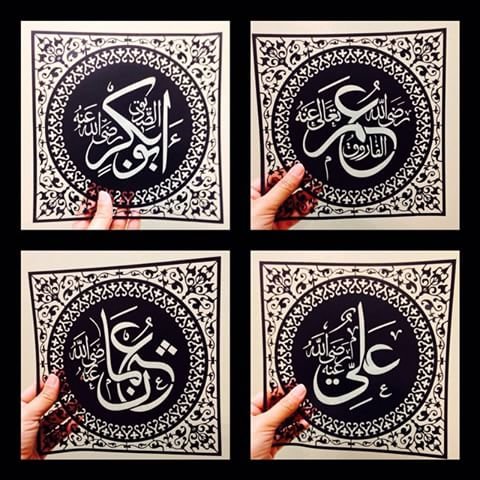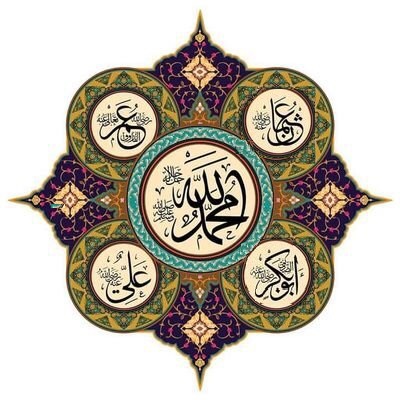Khulafa E Rashideen
4 khulfa E Rashideen - Seerat Khulafa E Rashideen - Tazkira E Khulafa E Rashideen - Companions of the Beloved Prophet (S.A.W)
Khulafa e Rashideen (Companions of the Beloved Prophet (S.A.W))
Khulafa e Rashideen are the people who accepted Islam during the lifetime of the Prophet and spent their lives serving Islam and the Muslim community. Khulafa e Rashideen were the closest companions of the Prophet, learned from him directly, and implemented his teachings in their lives. These companions are held in high esteem by Muslims, who consider them to be examples of faith, devotion, and dedication.
The Companions were a diverse group of people who came from different backgrounds and social classes. They included the wealthy and the poor, the powerful and the weak, men and women, Arabs and non-Arabs. They were united by their faith in Islam and their love for the Prophet. They supported him during his struggles and stood by him through thick and thin. Khulafa e Rashideen played a crucial role in the spread of Islam. They were the first to embrace the religion and to propagate its message. They spread Islam throughout Arabia and beyond, and their efforts led to the establishment of a powerful Islamic state. They fought for the cause of Islam, defended it against its enemies, and sacrificed their lives for its sake. Their sacrifices and dedication helped to establish Islam as a major world religion.
The Companions were not only supporters of the Prophet, but also his closest advisers and confidants. They were present during important events in the Prophet’s life, such as the revelation of the Quran, the migration to Medina, and the battles against the disbelievers. They learned from the Prophet and transmitted his teachings to future generations. They were the source of the Prophetic traditions (Hadith) and the interpreters of the Quran. Khulafa e Rashideen were also renowned for their piety, morality, and character. They were known for their honesty, integrity, generosity, and kindness. They were models of good behavior and exemplary conduct, and their stories are often cited as examples of how Muslims should behave. They were not only role models for their contemporaries, but also for future generations of Muslims.
Some of the most notable Companions include Abu Bakr, Umar, Uthman, Ali, Aisha, Fatima, Bilal, Salman, Abu Huraira, and Abdullah ibn Masud. Abu Bakr, the first caliph of Islam, was a close friend and adviser of the Prophet. He played a key role in the early spread of Islam and was instrumental in the compilation of the Quran. Umar, the second caliph, was known for his strict adherence to justice and his efforts to expand the Islamic state. Uthman, the third caliph, was known for his generosity and his contributions to the preservation of the Quran. Ali, the fourth caliph, was a close relative of the Prophet and known for his bravery and piety. Aisha, the Prophet’s wife, was a scholar of Islam and a key source of Hadith. Fatima, the Prophet’s daughter, was known for her piety and devotion to Islam. Bilal, the Prophet’s Abyssinian slave, was known for his courage and his beautiful voice. Salman, the Persian convert to Islam, was known for his knowledge of the Quran and his piety. Abu Huraira, the companion known for his prodigious memory, transmitted a large number of Hadith from the Prophet. Abdullah ibn Masud, another prominent companion, was known for his knowledge of the Quran and his piety.
Khulafa e Rashideen were not only his supporters and advisers, but also the custodians of his legacy. They preserved his teachings and transmitted them to future generations. Their stories and examples continue to inspire Muslims around the world, who look up to them as models of faith, devotion, and dedication. Their contributions Certainly, here are a few more paragraphs:
The Companions of the Prophet Muhammad (S.A.W) played a pivotal role in spreading and preserving the message of Islam after his death. They acted as the primary carriers of the Sunnah, or the sayings and actions of the Prophet, which were passed down through generations through their teachings and writings. It is through their efforts that the Islamic faith has been preserved and passed down to us today.
Khulafa e Rashideen were diverse in their backgrounds and experiences. Some were wealthy, while others were poor. Some were respected members of their communities, while others were outcasts. However, they were all united in their love for the Prophet and their dedication to spreading the message of Islam. They sacrificed their wealth, their time, and their lives to ensure that the Islamic faith would survive and thrive.
Khulafa e Rashideen also serve as role models for Muslims today. Their exemplary character, devotion to Allah, and selflessness serve as inspiration for Muslims to follow in their footsteps. By studying their lives and learning from their examples, Muslims can strive to embody the same qualities that made the Companions so beloved to the Prophet and to Allah.
Khulafa e Rashideen played a critical role in the spread and preservation of the Islamic faith. They were devoted followers of the Prophet, who sacrificed their time, wealth, and lives to ensure that the message of Islam would survive and thrive. Their example continues to serve as inspiration for Muslims today, who strive to embody the same qualities of devotion, selflessness, and love for Allah and His Messenger.

Hazrat Abu Bakr Siddique (R.A)
The first of these caliphs was Abu Bakr, who was a close companion of the Prophet Muhammad (SAW). Abu Bakr is remembered for his efforts to unite the Muslim community after the Prophet’s death, as well as his role in leading the Muslim armies during the Ridda Wars, which were fought to suppress rebellions that had broken out following the Prophet’s death. Abu Bakr’s reign was also marked by the compilation of the Quran into a single volume.
Hazrat Umar Farooque (R.A)
The second of the Khulfa-e-Rashideen was Umar ibn Al-Khattab. Umar was known for his strict adherence to justice and his efforts to promote the welfare of the Muslim community. During his reign, the Islamic empire expanded significantly, with the conquest of Persia and the establishment of the first Muslim capital in the city of Kufa. Umar was also known for his establishment of a centralized administrative system, which helped to improve governance throughout the Muslim world.

Hazrat Usman Ghani (R.A)
The third of the Khulfa-e-Rashideen was Uthman ibn Affan, who is remembered for his role in overseeing the completion of the compilation of the Quran, which was begun during Abu Bakr’s reign. Uthman was also responsible for the establishment of a standardized version of the Quran, which helped to promote unity and consistency in the Muslim world. During his reign, the Islamic empire continued to expand, with the conquest of North Africa and the establishment of the first Muslim navy.
Hazrat Ali Murtaza (R.A)
The final of the Khulfa-e-Rashideen was Ali ibn Abi Talib, who was a cousin and son-in-law of the Prophet Muhammad (SAW). Ali was known for his piety and his deep knowledge of Islamic theology and law. His reign was marked by a number of conflicts, including a civil war against the forces of Muawiyah, the governor of Syria. Despite these challenges, Ali is remembered for his commitment to justice and his efforts to promote unity within the Muslim community.

The Khulfa-e-Rashideen were a group of four caliphs who succeeded the Prophet Muhammad (SAW) as leaders of the Muslim community. They were known for their piety, wisdom, and justice, and their reigns are seen as a model for all subsequent Muslim rulers. Their achievements, struggles, and impact on the Islamic world continue to be remembered and celebrated today.
